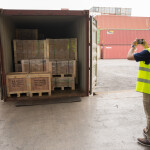27
Aug 2014
Myanmar’s new Special Economic Zone
In a bid to further boost trade with China and address the increasing demand for transport and infrastructure, Myanmar is implementing a Central Economic Zone in the border town of Muse, project officials announced last Tuesday.
Following a series of economic and democratic tax reforms intended to encourage foreign direct investment, Myanmar saw FDI increase from US$300 million in 2009-10 to US$20 billion in 2010-11 and a resulting rise in GDP rate from 5 percent in 2009 to 6 percent in 2012.
Subsequently, a regulatory body to oversee and further facilitate the country’s economic growth – the Central Body for the Myanmar Special Economic Zone – was established in 2011 and has since set up several Special Economic Zones (SEZs) which provide tax and land incentives to encourage FDI.
The latest of these will be in Muse, a border town in Myanmar’s northern Shan state that links the country to the county-level city of Ruili, in China’s Yunnan province.
The Asian giant is Myanmar’s biggest investor with some US$14.251 billion spanning 65 projects as of June 2014. Bilateral trade between the two countries stood at US$6.619 billion in 2013, making up 28.4 percent of Myanmar’s total foreign trade value. In the fiscal year 2013-14, over 60 percent of Myanmar’s total border trade (over US$3 billion) poured in from China via Muse, making it the highest border trade transaction between the two countries.
Indeed, the growing gateway city, a hub for resources, construction materials and consumer goods, is Myanmar’s most important border trade post, seeing US$189 million in cross-border trade this January alone.
However, concerns were raised that this rapid economic growth was putting too much strain on the city’s outdated infrastructure and plans for the new Muse Central Economic Zone were approved by authorities in early 2013.
The SEZ covers 120 hectares of land at a cost of US$51.54 million, development rights to which have been granted to Burmese firms Great Hawkham Public Co Ltd and New Star Light Co Ltd. Burmese and Chinese businessmen have been rushing in to buy the land not yet confiscated for the urbanization project, causing local land prices to soar.
Projects in the SEZ will include the construction of cargo yards and a traffic detour to combat congestion caused by an increasing number of cargo vehicles, while real estate development is said to include hotels, jade trading shops, supermarkets, recreation centers and business towers.
Foreign investors have long been interested in, but wary of, Myanmar, which despite its rapid economic growth still faces problems regarding its infrastructure and political instability. The SEZs show that steps are being taken to make the Republic a more business friendly environment. This latest project in Muse is good news for investors.
Source: Asia Briefing
For more information: SBE International































